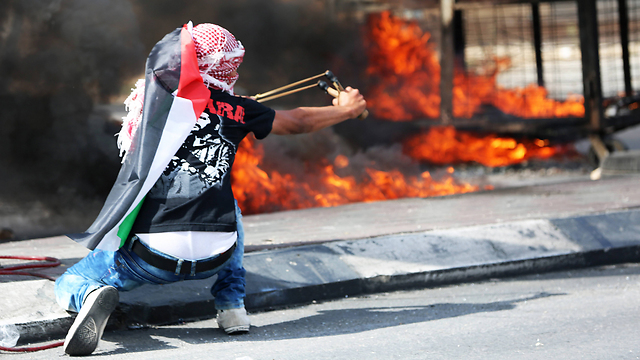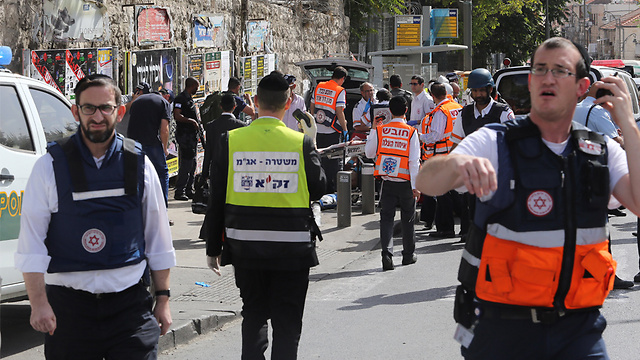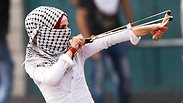
The 'intifada of knives': A fire with no fuel
Analysis: Palestinians committing violence are mainly interested in being hailed as heroes online; Arab world surmises that without support from Fatah and Hamas, the 'knife intifada' won't devolve into anarchy.
Why then, despite the gravity of the events and their non-stop momentum, do most commentators in the Arab world feel that there is little chance of their succeeding or effecting change?
It seems that every 13–15 years, a new generation of Palestinians arrives that has been schooled on the values of the struggle against the “Zionist occupation” but has forgotten the tremendous damage and death this battle has caused.
The reasons for the outbreak of each uprising change – for example the economic crunch at the end of the ‘80s, or the Palestinians’ refusal to accept the outcomes of the Oslo Accords at the end of the ‘90s. The two-stage withdrawal from Lebanon, each one preceded by an intifada, served as an example to Palestinians of the effectiveness of a guerilla war.
The first intifada was a popular uprising, which the Palestinian Liberation Organization and Hamas gradually took over. The second intifada was planned and initiated by both organizations, therefore making use of the PA’s police weapons and Hamas’s suicide bombers.
The current intifada is a popular initiative like the first, except without the management of any of the Palestinian organizations. Why is that?
Fatah is scared of Hamas, Hamas of Islamic Jihad
The situation has changed and does not resemble that of the ‘80s or ‘90s. The leadership has been silenced by the rift between the West Bank and the Gaza Strip, between Fatah and Hamas. The Palestinian Authority fears that the spread of unrest through the West Bank could undermine its power and allow Hamas to take over.
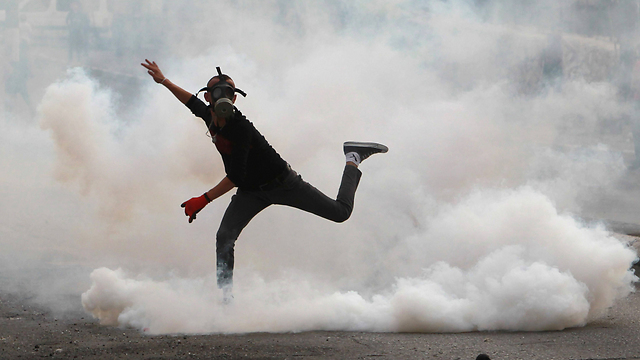
Hamas, for its part, is worried about a confrontation with Israel at this time, too close to last summer’s conflict. The “hudna” (ceasefire) agreed with Israel was supposed to give the organization time to regroup for the next round, but Hamas is still some way from completing its preparations. Furthermore, Hamas is currently supported by Qatar rather than Iran and the Gulf state is not currently encouraging them to start firing.
Hamas hopes to win aid from Saudi Arabia as well, in order to rebuild the Gaza Strip. The organization is worried that its current weakness will strengthen rival organizations in the Strip such as Islamic Jihad and the Sinai branch of the Islamic State.
No faith in leadership
Support for the “intifada of knives” from the governments in Gaza and the West Bank is, therefore, verbal only. The present uprising has sprung from teenagers – youths who despaired of the chances of Fatah and Hamas achieving national goals.
Youngsters surf internet sites that influence them far more than their education at home. Adults recoil from the disturbances out of fear of the repercussions of supporting them.
The atmosphere in the Middle East radiates from every screen in every young Palestinian’s home – young protesters coming out against the regime in many of the region’s countries, serious violence on the part of Islamist organizations fighting this or that, civil wars and explosions. The web is full of violent videos from Iraq and Syria that one does not see in the rest of the world.
Many youngsters are influenced by this atmosphere and want to become martyrs for the ultimate religious goal. The security establishment needs to shut down dangerous websites and educators need to try and understand why it is so easy to incite youth in East Jerusalem and elsewhere.
Online propaganda
Propaganda on the internet is distributed by the Islamic Movement in Israel, whose northern branch is behind much of Israeli Arabs’ involvement in the current intifada. Unofficial and anonymous organizations are active online, among them the “Al-Aqsa Media Center” that spreads propaganda under the mantle of a news network on its website and Facebook page and “The Third Intifada in Jerusalem.” The website administrators have doctored a Facebook “like” button that shows the hand grasping a knife.
While it’s difficult to go after the websites’ creators, most of them criticize the Egyptian regime, which informs us that Hamas and Islamic Jihad are behind them. As we know, the regime of Egyptian President Abel Fattah al-Sisi puts a great deal of effort into fighting the Muslim Brotherhood.
The youngsters working on their own are not trying to reignite the stalled political process or persuade Israel to return to the negotiating table. They want to be hailed as heroes on the internet, because for their generation there is no separation between the real and virtual worlds.
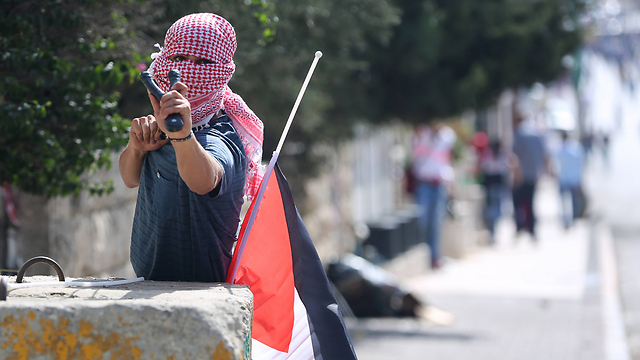
They use knives and cars, and attempt to snatch weapons because they don’t have any in reach as they did during the second intifada. They are presented as heroes worthy of emulation, martyrs who sacrifice themselves for the Palestinian homeland and who will reach paradise after their death.
The program of incitement that focuses on what the Palestinians are calling “al-Aqsa in danger” is propaganda that the Islamic Movement has been disseminating in mosques in Israel and throughout the Arab world for years. The websites that influence youngsters include a list of alleged Jewish plots to harm the mosque, starting with the plan to set it on fire in August 1969. This plan was actually put together by a mentally ill Christian from Australia. The websites also list alleged plots to change the current status quo.
There is also real information interwoven with propaganda, foremost regarding burning of the house of the Dawabsheh family in the Palestinian village of Duma, a crime that set off riots in Jerusalem. Websites post photographs of Jews in kippahs ascending the Temple Mount escorted by Border Police, under the headline "Al-Aqsa incursion." All these events are subject to distortion and incomplete coverage which changes their meaning.
For example, Palestinian protesters holed themselves up inside al-Aqsa Mosque several months ago, armed with Molotov cocktails and fireworks. This was not mentioned at all; only the entry of police into the mosque, which was in fact in response to their activities, was covered - under the heading of "desecration of our holy ground."
The insane actions of the stabbers of recent weeks are also disconnected from the responses of the public and security forces. The web is flooded with pictures of the bodies of terrorists after they have been taken out and are presented as free of criminal guilt. The goal is thus achieved: dead and injured young Palestinians splayed out on the ground, with "al-Yahood" (the Jews) to blame.
A fire without coal
But Arab commentators are pessimistic about the "knife intifada" surviving. They think that it is fire with a lot of matches but no coal. Without support from Fatah or Hamas, the chances of it spreading or having any real longevity are slim. The Arab world also only offers verbal support. Most commentators blame Israel for exploiting the disruption across the Arab world during the past few years in order to continue the momentum of building in the settlements. There are also claims that Israel took advantage of the US applying less pressure regarding settlement-building during the Iran talks.
Middle East media networks primarily deal with the principal concerns of the Arab world: Russia's arrival on the scene, the threat from Islamic State and Iran's involvement. From the Palestinians' perspective, the "intifada" erupted at a bad time. They have no real internal or external support (financial or weapons-wise) and it broke out at a time when the nightmare of all the Arab world's leaders is the social protests turning into anarchy.










